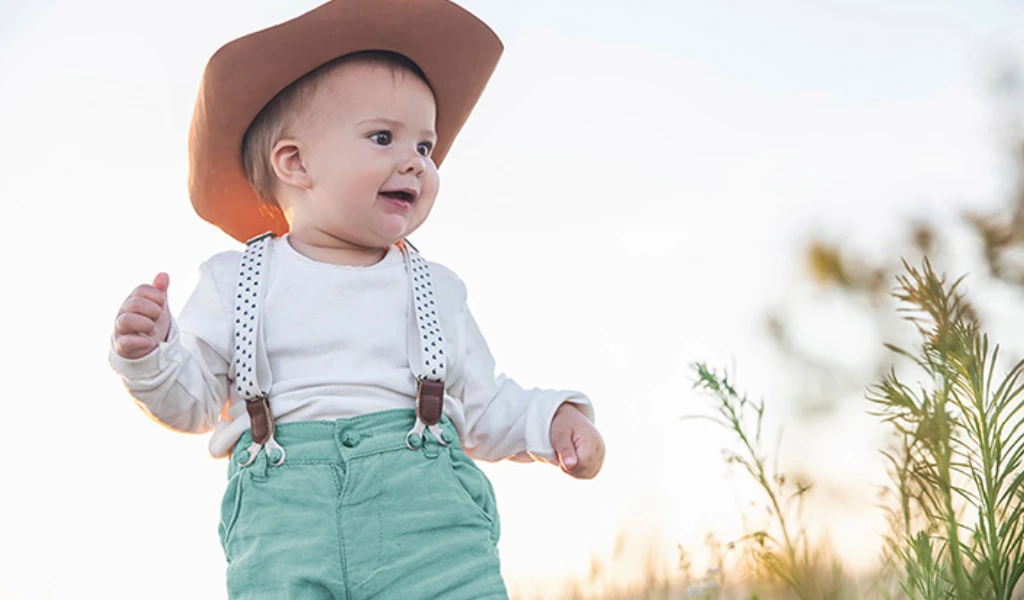Discover the work history of Germany by looking at common surnames or last names.
German surname or last names have been shaped by the historical and geographical shifts in Germany. Therefore, many surnames in Germany are connected to people’s professions and hometowns. Although some of these occupations no longer exist, the surnames continue to be used.
This post ‘Famous German Last Names Or Surnames With Meanings’ presents a collection of fascinating German last names along with explanations of their meanings and origins.
Famous German Last Names Or Surnames With Meanings
1. Abel
This German surname refers to the meaning ‘noble one’ and comes from the Old German name ‘Albrecht.’
2. Aber
This German surname comes from the Teutonic tribe from coastal Germany and means ‘illustrious.’ It may also have originated from the Old German word ‘Albrecht.’
3. Achen
It is a German surname based on a place, used for people who originally came from the city of Aachen in western Germany.
4. Adelberg
The German name Adelberg is a surname given to people who originated from the town of Adelberg in Germany. It is made up of two German words, ‘adel’ which means ‘noble’ and ‘berg’ which means ‘mountain.’
5. Altmann
This German last name is a different form of the name ‘Aldman.’ It means ‘old man’ in the German language.
6. Angert
This German last name comes from the German word ‘Anger,’ which refers to a meadow, lawn, or green area.
7. Babler
It is a variation of the surname ‘Babo,’ which comes from the Old German name ‘Badubrecht,’ meaning ‘battle-bright.’
8. Bach
In German, this surname means a small body of moving water, such as a stream or brook. This last name likely comes from someone who lived near a stream or creek.
9. Bahn
This surname is of German origin and is derived from the word ‘ban’ in Middle High German, which means a clear area or open space.
10. Balsiger
This is a German surname that refers to people from Palzing, a place in Bavaria, Germany.
11. Bank
This surname comes from German and refers to a ‘bench’, probably used as a last name for someone whose job involved working on a bench.
12. Banner
The surname ‘Banier’ comes from a word in Middle High German meaning ‘flag bearer.’ It is likely that this German last name originally referred to a person’s occupation.
13. Bartel
The surname ‘Bartel’ comes from German and originates from the words ‘beraht’ meaning ‘bright’ and ‘wald’ meaning ‘rule’ in Old High German.
14. Bayer
The surname ‘Bayer’ refers to someone from the German state of Bavaria, known as ‘Bayern’ in German.
15. Billman
This German last name comes from someone who lived near the Bille River in Hamburg, Germany.
16. Candler
It is a different way of spelling the surname ‘Kandler,’ which originally described someone who worked as a potter.
17. Canter
The surname ‘Canter’ or ‘Kantor’ is of German origin and refers to someone who works as a schoolmaster or choirmaster.
18. Dahm
The surname Dahm refers to people from different locations in Germany known as Dahme.
19. Danner
This surname is probably from the Middle Low German word ‘dan,’ which means ‘pines’ or ‘forest.’ It is a German name for people who live close to the forest.
20. Debus
This surname comes from ‘Matthaus,’ a German version of ‘Matthew,’ which means ‘gift of God’ in Hebrew.
21. Decker
The surname ‘Decker’ originates from German and means ‘ceiling,’ ‘roof,’ or ‘cover.’ This last name is associated with occupations such as carpenter, builder, or roof thatcher.
22. Degler
Degler is a surname in German that means ‘pot’ or ‘earthenware,’ and it is also used as an occupational name for a potter.
23. Deichert
It is a changed form of the surname ‘Teicher,’ which originated from the German word ‘Teich’ meaning ‘pond’ and is used for people who live near a pond.
24. Dell
The surname Dell comes from German and means dell, which is a small valley. Another possible origin is the German word “edel,” which means noble or aristocrat.
25. Denhart
The name comes from the German surname ‘Degenhardt’, made up of Old German words ‘degen’ which means ‘young warrior’ and ‘hardt’ which means ‘strong’.
26. Eben
The name is a German surname that comes from a specific place in Bavaria called Eben.
27. Eberhardt
This surname comes from two German words: ‘eber’ which means ‘boar’ and ‘hardt’ which means ‘strong’ or ‘tough.’ So, the surname translates to ‘strong boar’ or ‘brave boar.’
28. Ebert
The meaning of the name ‘Eber’ is connected to a strong boar, while it may also have roots in the name ‘Herbert’ which derives from Old German words meaning army and bright.
29. Eckstein
The surname ‘Eckstein’ comes from Old German words that mean ‘edge’ or ‘corner’ combined with ‘stone.’ It is believed to refer to either someone living on a cliff or someone who worked as a stonemason.
30. Edinger
It is a last name that comes from a specific location in Germany called Edingen.
31. Eggemann
It is a version of the surname ‘Eckmann’ derived from the Old German word ‘ecke’ meaning ‘edge’ or ‘corner.’ This last name probably describes someone who resided on the edge of a hill, at the intersection of two streets, or on the corner of a field.
32. Eichmann
The surname ‘Eichmann’ comes from the Middle High German words for ‘oak’ and ‘man.’ This means it translates to ‘oak man’ and could be a surname for someone living near an oak tree.
33. Eidman
‘Aido’ is a shorter version of a German surname that likely comes from the word ‘Eid,’ which means ‘oath.’
34. Eiker
It is a different way of spelling the German surname ‘Eicher,’ which originates from the word ‘Eich’ that refers to an oak tree.
35. Eisenberg
The German surname ‘Eisenberg’ combines Middle High German words ‘Eisen’ (iron) and ‘berg’ (mountain).
36. Eisenhauer
In German, the surname ‘Eisen’ means iron, and ‘hauer’ means to hew or cut. When combined, it forms a German job title for a blacksmith.
37. Esther
This is a German surname that comes from a place called Ester in Bavaria, Germany.
38. Eulberg
The surname ‘Eulberg’ means a name that comes from Eulenburg or Eilenburg in Germany.
39. Eyer
The name ‘Egger’ is a variation of the German surname ‘Egger,’ which comes from the word ‘eggen’ meaning ‘to harrow.’ This last name probably originated as an occupational name for a farmer.
40. Fackler
This last name comes from Middle High German and means someone who carries a torch or makes torches.
41. Fahrer
It is a last name given to people who work as ferry operators and also for people who live near a river with a ferry.
42. Falkner
An occupational surname for a person who cared for and trained falcons was known as a falconer.
43. Fassbender
The surname ‘Fassbender’ comes from the word ‘Fassbinder,’ which is made up of two Middle High German words, ‘faz’ for ‘barrel’ and ‘binder’ for ‘joiner.’ Fassbender as a surname is related to the occupation of a cooper, who makes or repairs barrels.
44. Faust
The surname comes from the Middle High German word ‘fust’ which means ‘fist’ and is used to describe a strong person. It could also be linked to the Latin word ‘Faustus’ meaning ‘favorable’ or ‘lucky.’
45. Fink
The bird ‘Finch’ is called by this German surname. This last name was thought to have originated as a way to describe someone who is lively and cheerful.
46. Funke
This last name probably comes from the Middle High German term ‘vunke,’ which means ‘spark.’
47. Gabel
The surname ‘Gabel’ in German means ‘fork.’ This last name was likely given to someone who sold or made forks, such as pitchforks.
48. Gebhardt
This German surname is made up of two words, ‘geb’ meaning ‘gift’ and ‘hardt’ meaning ‘strong’ or ‘hard.’
49. Gehr
The surname ‘ger’ comes from Old German and it means ‘spear.’
50. Geiss
This German surname comes from the word ‘geiz’, which means ‘goat’, and is given to someone who herds goats as a job.
51. Geller
The origin of the surname ‘Geller’ can be traced back to the German word ‘gellen,’ which refers to a high-pitched sound or shouting. Originally, it may have been used as a surname for someone who served as a town crier.
52. Gerner
A toponymic surname is given to someone who comes from one of the many places called Gern in Bavaria, Germany.
53. Gerwig
This surname is derived from Old German words ‘ger’ and ‘wig’, which mean ‘spear’ and ‘battle’, respectively.
54. Gossmann
This German last name or surname is made up of two words, ‘goz’ which means ‘goth’ and ‘mann’ which means ‘man.’
55. Grab
This last name comes from the word ‘grabe’ or ‘graben,’ which means a ‘ditch’ or ‘moat.’
56. Haber
The surname ‘Haber’ originates from Middle High German and refers to ‘oats.’ This surname probably means someone who grows or sells oats.
57. Hader
This surname originates from the Old High German term ‘hadu’ which translates to battle. In Modern German, it signifies ‘discord,’ ‘discontentment,’ or a ‘quarrel.’
58. Hager
The German surname ‘Hager’ means a really skinny person. It may also come from the Middle High German word ‘hac,’ which refers to a fence or enclosed area.
59. Hahn
This German surname means ‘rooster’ and may have been used as a nickname for someone who is overly proud.
60. Handler
This surname to the individual who trains and works with a specific animal, such as a dog or horse.’Hendrix’ is another surname for ‘Hendler,’ which originally meant a merchant or trader in Middle High German.
61. Hannen
This German surname comes from the Biblical name ‘Hanna’ originally, which means ‘favorable one’ or ‘graceful one’ in Hebrew.
62. Hardt
This surname is based on where someone lived, possibly in the woods. Another possible origin is the German word ‘hart’ meaning strong or tough.
63. Hardwick
The surname ‘hardwick’ comes from the combination of two Old German words: ‘hard’ which means ‘strong’ and ‘wic’ which means ‘battle’.
64. Harling
This surname comes from an ancient German word ‘herling’ which means ‘sour.’ This name might have been used as a nickname for someone who was immature. ‘Harling’ could also be a surname that indicates someone came from a place in Germany with a similar name.
65. Hasselbach
Hasselbach is a surname of German origin. The last name Hasselbach is used to refer to someone who comes from one of the many places called Hasselbach in Germany.
66. Haubert
It is a version of the German surname ‘Hubert,’ which originates from Old German and translates to ‘bright-hearted’ or ‘bright-spirited.’
67. Heffner
This surname is a version of the German surname ‘Hafner,’ which originally meant a potter. The last name comes from a German word ‘hafen,’ which refers to an ‘earthen pot.’
68. Heinrich
This German surname comes from ‘Heimirich,’ which means ‘home ruler’ or ‘ruler of the household.’
69. Henke
‘Heinrich’ can be shortened to this surname, which also signifies someone who rules over their own home.’
70. Herber
It is a different form of the surname ‘Herbert,’ originating from Old German with the meaning of ‘shining army’ or ‘bright army’.
71. Hertz
The origin of the surname ‘hertz’ comes from Middle High German and means ‘heart.’ Initially, this last name was used to describe someone who is known for being caring and compassionate.
72. Hiegel
This surname comes from the German name ‘Hugo,’ which means ‘bright soul’ or ‘bright-hearted.’
73. Horch
This surname originates from the Middle High German term ‘hor,’ which translates to ‘mud.’ This last name is used to describe individuals who reside near marshy areas.
74. Hoss
It is another name for ‘Hess,’ which refers to individuals from the state of Hesse in Germany.
75. Hummel
This German surname is derived from ‘Humbert’ which means a bright warrior.
76. Hurst
This German last name is derived from the word ‘hurst’ in Middle High German, which means ‘woodland.’
77. Ingman
It is a different way of spelling the surname ‘Engmann,’ which in German means ‘narrow.’ This name is used to describe someone who lives in a tight or enclosed space such as a valley.
78. Iselin
It is an alternate surname for ‘Eisele,’ which comes from Middle High German and is a term used for a blacksmith or someone who works with iron.
79. Jachim
It is a version of the surname ‘Joachim,’ which has its origins in the Hebrew name ‘Yoyakim.’ Yoyakim signifies being ‘raised by god’ or ‘god’s judgment.’
80. Jacobsohn
This surname comes from ‘Jacob,’ which has its origins in Hebrew and can mean either ‘supplanter’ or ‘god-protected.’
81. Hunter
Hunter alternate name ‘Jaeger’ is derived from the German word meaning ‘hunter’.
82. Jandt
Jan is a variation of the surname Jandt, which is the female version of John. John is a Hebrew name that translates to ‘god is gracious.’
83. Jenner
This surname originates from the German word ‘Jänner,’ which means January. A person with this name may have been born or baptized in that month.
84. Jonke
This surname comes from the Middle High German word ‘junc,’ often used as a nickname for young people. Another possible origin is the name ‘John,’ meaning ‘god is gracious’ in Hebrew.’
85. Juedes
This surname comes from the name ‘Jutes,’ which refers to a group of people from Denmark.
86. Kafer
Kafer refers to the German name for ‘beetle’. In German, the word means ‘beetle.’ It may have also come from the Low German word ‘kufe’ which means ‘hut.’ This last name could have referred to someone who lived in a hut.
87. Kahl
This surname comes from the German word ‘kal’ which means ‘bald.’
88. Kalbach
The surname ‘Kalbach’ comes from German words that mean ‘cold’ and ‘brook’ or ‘stream.’ It likely describes someone who lives near a cold stream.
89. Kant
This surname originated from the German word ‘kante’, which translates to ‘edge’ or ‘corner.’ This last name is used to describe a person who resides on the outskirts or a corner of a specific area or city.
90. Kaplan
This German surname refers to ‘chaplain’.
91. Katz
This surname comes from the German word for cat, ‘katze.’ This last name probably refers to individuals who have traits similar to a cat, such as agility and freedom.
92. Kaufmann
This is a job title for someone who is involved in buying and selling goods or running a business.
93. Kegel
Kegel is a term used for a game called skittles. It is a way to describe someone who plays the game.
94. Kehr
Kehr is a German surname, often used as a last name for individuals. This surname comes from the Middle High German term ‘kere’ which means ‘bend’ or ‘corner.’ This last name is used to refer to someone who lives near a road corner or bend.
95. Kemper
It’s a title used for small-scale farmers.
96. Kien
This surname comes from the German term ‘kuhn’ which means ‘bold’ or ‘brave.’
97. Kimmel
This surname comes from the German word ‘Kümmel’ which means caraway plant. This surname is linked to someone who grows or sells caraway seeds.
98. Klamm
In German, the surname ‘Klamm’ means a narrow valley or pass, and is used as a name for someone who lives near a gorge.
99. Klauss
It’s a twist on the name ‘Klaus,’ which is the German form of Nicholas, meaning ‘victory of people’ in Greek.
100. Kuehler
This surname comes from the Middle High German name ‘Kule,’ which refers to a place where stone is extracted. This surname is used for someone who resides near a quarry.
101. Kupper
This German surname is a different version of the name ‘Kuper’ or ‘Kufer,’ which originally meant a person who made barrels.
102. Lachmann
The German surname Lachemann comes from the Middle High German words for ‘lake’ or ‘pond’ and ‘man.’ It is a last name that describes someone who lived near a lake or other body of water.
103. Landt
The German surname Landt originates from the Middle High German word ‘landt,’ which simply means a piece of land. It likely started as a description for someone who was well-known and respected in a particular area.
104. Last
This surname in German refers to carrying a load and is used as a job title for someone who carries burdens.
105. Laue
This German surnmae comes from an old German word ‘lower’ meaning a person who works as a tanner.
106. Lehr
This German surname comes from the Old High German word ‘loh,’ which refers to a meadow, marshy land, or clearing. It is a surname based on where someone lives in one of these areas.
107. Lemberg
This German surname is derived from the location known as Lemberg in Germany.
108. Lichtenberg
The German surname Lichtenberg is used for someone from various places in Germany. In German, ‘licht’ means ‘light,’ and ‘berg’ means ‘mountain.’
109. Liebe
The origin of this German surname comes from the Middle High German word ‘liep,’ which translates to ‘dear’ or ‘beloved.’
110. Lillich
The German surname ‘Lillich’ originates from Middle High German and means ‘lily.’ This last name is used for someone who lived in a house named after the lily flower.
111. Linde
The German word for lime or a lime tree is ‘linden.’ It is also a German surname used to describe someone who lives near a lime tree.
112. Lindt
This German surname comes from the Linden tree. It may also have originated from the Middle High German word ‘lind,’ meaning ‘gentle’ or ‘kind-hearted.’
113. Lochmann
The surname ‘Lochmann’ in German means ‘hollow,’ and it refers to a person who lived near a valley.
114. Loder
The German surname ‘Loder’ comes from Middle High German and it was used to describe someone who made woolen cloth by weaving.
115. Lux
The German surname ‘Lux’ in Middle High German means someone with good eyesight.
116. Mahler
The German surname Mahler comes from the German name ‘Maler’ meaning ‘painter.’ It is a last name given to painters as an occupation.
117. Majer
This German surname is a version of Macher, which is a name based on a place called Machern in Germany.
118. Mandel
The German surname Mandel comes from the word ‘almond’ and is a last name that indicates someone either living near almond trees or working as a seller of almonds.
119. Margraf
The German surname Markgraf originates from the Middle High German term ‘margrave.’ This last name is made up of the words ‘marc,’ which means ‘boundary,’ and ‘grave,’ which means ‘royal judge.’
120. Mauer
This German surname is a different form of the name ‘Maurer,’ which means a person who works with bricks and builds walls.
121. Nacht
The German surname Nachtt means ‘night’ and is likely used as a name for someone who worked as a night watchman.
122. Naser
The surname Neserr in Middle High German means a shoulder bag for food. It is also believed to be a nickname for someone who loves food and is a food connoisseur.
123. Neider
This German surname comes from a place called Neida in Germany.
124. Nestel
It is a surname for someone who makes cords, strings, shoestrings, or ribbons.
125. Neuer
The German surname ‘Neuer’ comes from German and means ‘new’. When used in a surname, it signifies someone who is new to a specific location.
126. Nevel
This German surname comes from the German word ‘nebel’ which means ‘mist’ or ‘fog’. This surname is probably used for someone from the colder parts of Germany.
127. Nida
This German surname comes from the town in Germany called Nidda.
128. Nipp
This German surname comes from the Middle High German term ‘nip,’ which means ‘sharp eyesight and hearing.’ It likely started as a nickname for someone who is observant and attentive.
129. Nix
The German surname ‘Nix’ originated from the Middle High German word and it refers to a water sprite, a spirit connected to water.
130. Norder
Norder is a surname given to someone from a place in Germany. It could also refer to someone who lived in the northern part of a region.
131. Oberhaus
It is a German last name that refers to someone who is from a location called Oberhausen.
132. Obermann
The German surname ‘Obermann’ comes from the German words ‘ober’ meaning ‘upper’ and ‘mann’ meaning ‘man.’ It might have been given to someone who lived in the higher part of a town. This surname from Germany also could have been a title for a mediator.
133. Ockert
It is a German last name based on a place name for people who lived near the Oker river in Germany.
134. Odenwald
This German surname is based on the places along the Odenwald mountain range where a person came from.
135. Offen
This German surname comes from ‘ofen,’ the German word for ‘oven.’ The last name ‘Offen’ is a name given to someone who worked as a baker.
136. Osen
This German last name comes from a place near the river Oese in Germany.
137. Ostermeyer
This German last name comes from two words in Middle High German, ‘oster’ which means ‘eastern’ and ‘meyer’ which means ‘farmer.’ So, the surname means ‘eastern farmer’ and was used to describe farmers or peasants who worked in the east part of an area.
138. Ostwald
The last name ‘Oswald’ is a German version of a name that is derived from the Old English words ‘os’ (meaning ‘god’) and ‘weald’ (meaning ‘ruler’). This last name probably described someone who was a strong leader or chief.
139. Pahl
The German surname ‘Pahl’ comes from Middle Low German and refers to a pile or post. It is used as a last name for someone who drives poles into the ground for construction purposes. This surname may also be a German version of ‘Paul,’ which means ‘humble’ in Latin.
140. Palmer
The German surname ‘Palmer’ comes from the German name ‘palme,’ which can refer to different types of palm and willow trees. A toponymic surname ‘Palmer’ is used for someone who used to live near a plantation or forest of willow and palm trees.
141. Payer
This German surname is a different form of the name ‘Bayer,’ which refers to someone from the state of Bavaria, known as ‘Bayern’ in German.’
142. Peifer
This German surname is a different version of name ‘Pfeiffer,’ which comes from the occupation of a pipe player. This is because ‘Pfeife’ means ‘whistle’ or ‘pipe’ in German.
143. Perleberg
It’s a German surname based on a place in Germany called Perleberg.
144. Pflug
The last name ‘Pflug’ in German refers to a tool used for plowing fields, and it’s also used as a job title for someone who plows fields, like a peasant or farmer.
145. Picker
This last name is given to someone who works with a pickaxe.
146. Piltz
This German surname comes from the German word ‘Pilz,’ which translates to ‘mushroom.’ This last name is based on the job of gathering mushrooms.
147. Printz
This fancy last name comes from the German word ‘prinz’ which translates to ‘prince.’
148. Rader
This German surname is a shortened form of the name ‘Rademacher,’ which comes from the words ‘rad’ meaning ‘wheel’ and ‘macher’ meaning ‘maker.’ This last name was given to those who worked as wheelwrights, making or fixing wheels.
149. Rahman
This surname comes from the German name ‘Rahmann’ and is derived from the word ‘rade’ which means a ‘clearing in the forest.’ This surname is used for someone who lives in a clearing in the forest.
150. Ramp
This surname comes from the Middle High German term ‘ramft’ which means ‘edge’ or ‘wall.’ It is typically given as a last name for someone who resided at the boundary of a field.
151. Ranger
This German last name refers to someone from one of the many places named Rangen in Germany.
152. Rasner
This German surname is a variation of ‘Rosner,’ which is a last name that refers to someone from any of the places called Rosenau in Germany or other parts of Europe.
153. Rath
The origin of this German surname is from the Middle High German word ‘rat,’ which means ‘counsel’ or ‘advice.’ This last name typically signifies someone who works as a counselor or adviser. It could also indicate someone from one of the various places named Rath in Germany.
154. Redmann
This German surname is made up of ‘rad’, which refers to advice or counsel, and ‘mann’, which means man.
155. Reinhart
This German surname means ‘brave-hearted.’ This last name has roots in Old German, with ‘ragin’ representing ‘counsel’ and ‘hardt’ meaning ‘brave.’
156. Remlinger
The German surname Remlingen is used to refer to someone who comes from a location in Germany called Remlingen.
157. Reuter
The German surname ‘route’ has its roots in the Middle High German word ‘riute,’ which originally meant ‘cleared land.’ This last name could also have derived from the Middle High German word ‘riutoere,’ which could be associated with a highwayman, mounted soldier, or thief.
158. Rink
The German surname ‘Rink’ in Middle High German means ‘buckle.’ This last name is used for someone who works as a buckle or clasp maker.
159. Rinner
Its origin is from the German term ‘rinne,’ meaning a water channel or groove. This name is given to someone who resided near a water channel.
160. Saal
It is a German surnmae for a big room, hall, or theater. It probably originated as a job title for someone who works in a mansion.
161. Salzberg
This German surname indicates that someone is from a place in Germany called Salzburg.
162. Schaffer
Schaffer is a German surname that originates from the occupation of a steward. The surname comes from the Middle High German term ‘schaffen,’ which translates to ‘to manage.’
163. Schaeffer
This surname is a different version of the German term ‘Schäfer,’ which means someone who takes care of sheep.
164. Schlei
This German surname comes from ‘Schleie’ which means ‘tench,’ a type of fish. This last name represents someone who fishes.
165. Schoff
This German surname comes from the Middle High German word ‘schoup’ which means a ‘sheaf of grains.’ This makes it a name for someone who brews beer. Another possible origin is the Middle High German word ‘scheffe,’ which refers to a ‘juror.’
166. Schwein
It is a job title for someone who takes care of pigs – a person who raises and looks after swine or hogs.
167. Schwing
This surname originates from the German name ‘swingen,’ which means to ‘swing’ or ‘swingle.’ It was used as a name for someone who would remove fiber from flax plants with a wooden tool called a swingle.
168. Stueber
The surname ‘Steuber’ comes from Old High German and means a room. It is used as a surname for a person who owns a tavern, inn, or resting place for travelers.
169. Supple
This surname is given to someone who works as a cook. It originated from the term ‘suppe’ in Middle High German, which refers to ‘soup’ or ‘broth.’
170. Tannenbaum
This surname in German means a pine tree or fir tree. This last name describes someone who lives near one of these trees.
171. Tinsman
This German surname comes from two Middle Low German words: ‘tins,’ which means ‘tax,’ and ‘man,’ which means ‘man.’ Therefore, this surname refers to either a taxpayer or a tax collector.
172. Trapp
The German surname ‘Trapp’ comes from the German word for ‘steps.’ It is probably a last name based on where someone lives, near an area with step-like terrain.
173. Trip
This surname has its origins in Old German and is used to describe wooden pattens or clogs, a type of footwear made of wood. This last name is associated with people who create these wooden shoes.
174. Trump
The origin of the surname ‘Trump’ comes from the Middle High German term ‘trumpe,’ which means a drum. This last name is used to describe a person who plays the drums.
175. Ufer
This surname comes from the Middle High German word ‘uover’ which means the ‘bank of a river or lake’ or ‘shore of a sea.’
176. Uffelman
It is a name that refers to someone from one of the many places called Uffeln in Germany.
177. Uhlhorn
The surname Uhlhorn is used for someone from a specific place in Germany called Uhlhorn, which is situated near the Hunte river.
178. Ulrich
The surname comes from an Old German name ‘Odalric’ that means ‘wealth and strength.
179. Umholtz
This surname comes from the word ‘unholz’ which means scrap wood or leftover wood from furniture making. Umholtz is a name given to someone who works as a carpenter.
180. Vasel
The surname ‘Vasel’ originated from Middle High German and means ‘brood’ or ‘several offspring.’
181. Viel
This surname originates from the ancient German word ‘vil,’ which referred to a swamp or bog. This last name is used to describe someone who lived near a swampy area.
182. Voelker
The surname ‘Volker’ comes from the German words ‘folk’ which means ‘people’ and ‘heer’ which means ‘army.’ This last name means someone who protected the people.
183. Vogel
This surname comes from the name ‘Volker,’ which is made up of the German words ‘folk,’ meaning ‘people’ and ‘heer,’ meaning ‘army.’ This last name signifies someone who protected the people.
184. Von Berg
The German surname means ‘from the mountain.’ It is a last name given to someone who is from a mountainous area.
185. Von Glahn
This surname comes from the region near Hannover, Germany called Glahn.
186. Vorbeck
The German surname Vorbeck refers to a person from a specific place in Northern Germany.
187. Wack
The German surname Wacker comes from a place called Wacken in Germany or it could come from the word ‘wac’ meaning ‘pool’ or ‘pond’ in Middle High German. This last name might be referring to someone who lived by water.
188. Wagler
This surname is a different form of the word ‘wagener’ from Middle High German, which refers to someone who makes wagons.
189. Walberg
The surname Wallberg comes from places near a mountain called Wallberg in Germany. It may also be related to ‘Wahlberg,’ which means a hill with a meadow in medieval German.
190. Wall
It is a German surname based on the location of where someone lived near a defensive wall or fortification.
191. Weidig
This German surname indicates someone is from a specific place called Weidich in the Silesia region of Europe.
192. Wein
The surname ‘Wein’ is the German name for ‘wine’ and is used to describe someone who sells or makes wine.
193. Wirth
This surname comes from the German word ‘wirt,’ which translates to ‘host’ or ‘landlord.’ This surname is given to someone who works as an innkeeper.
194. Wurst
The job title indicates that it refers to someone who works as a butcher or specializes in making sausages, as the name itself means ‘sausage.’
195. Xander
This surname comes from the Greek name Alexandros, which means protector of humanity.
196. Zaring
The surname ‘Zehring’ given to someone from a place in Germany.
197. Zastrow
The surname Zastrow is given to someone from a specific place called Zastrow in the past region of Pomerania which was in both Germany and Poland.
198. Zeiger
This surname German term means ‘sign,’ ‘pointer,’ or ‘indicator.’ It is used as a job title for someone who creates signs.
199. Zeller
It is a last name based on a place name, indicating that the person came from a town named Celle in Germany.
200. Zimmermann
This German last name for a carpenter is used as an occupational name.
Frequently Asked Questions
If you want to learn about Germany and its culture, begin with the people and their last names. This collection of well-known and typical German surnames includes a variety of names. Even though Germans are now found all over the world, their last names offer clues about their ancestry and work history. By exploring this list of German surnames, you can gain a better understanding of the country’s variety and past through its citizens.



























